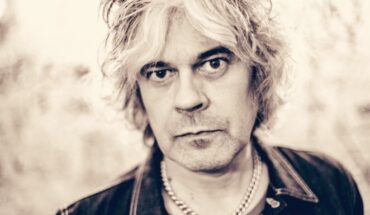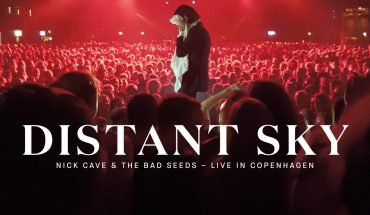Sleaford Mods aren’t so much exposing the irrelevance of contemporary British pop music as smashing straight through it – armed with nothing more than a microphone and a laptop. A new documentary, Invisible Britain, directed and produced by independent filmmakers Nathan Hannawin and Giglutz’s own Paul Sng, will follow them on their forthcoming tour of the UK’s forgotten urban centres. Pete Cary caught up with them to find out what all the noise is about.
Tell me about ‘Invisible Britain’ – what does it mean and why is it important to this documentary?
Paul: It’s a reference to the neglected and supposedly less attractive areas in the UK which aren’t shown on TV and that many people aren’t aware of. More importantly it refers to the disenfranchised and those who don’t have a voice in modern society, or people who have become the scapegoats and victims of ‘Broken Britain’. Those who’ve suffered from what are euphemistically termed austerity measures. Mark Wood is a good example. Mark had a number of mental health problems and starved to death four months after his disability benefits were cut, following an Atos test that judged him fit for work. Jordan Cunliffe is another example; he’s serving a life sentence for murder after being convicted with two other youths under the joint enterprise law. Jordan was 16 at the time of the murder and is registered blind. There are many more like Mark and Jordan. For us it’s important to highlight cases like theirs in the film as much as it is to tell the story of a band that understands how dire life is in Britain for many people in 2015.
Nathan: We made a conscious choice to not focus on London. The whole point is that some of the places the tour visits you don’t see in the news every day. The people who don’t normally have a voice in the media.
The trailer claims that “Britain is on the verge of a nervous breakdown”. In what sense?
Paul: It’s been building for years. Blair and Brown didn’t do enough to undo the damage caused by Thatcher. New Labour bottled it in their first term. They had a majority of 179 seats and could have transformed this country, but they abandoned Clause 4 and played safe. We weren’t prepared for the 2008 banking crisis or the austerity measures that have followed, and the nation is struggling to cope. There’s no obvious solution; Ukip aren’t the answer, but the swelling of support for them suggests people are misguided and incapable of seeing through the bullshit. Same thing with all this EDL nonsense. The 2011 riots were an example of how society can break down. What we’re seeing now is a general malaise resulting from the under privileged being worn down and having the fight kicked out of them. Life is bleak for a lot of people out there, but turn on the TV and you don’t see this reality.
Nathan: It’s been slowly boiling for a while, but it won’t be an explosion – more like a migration. The government is too alike, there’s no one to truly represent anyone but the upper and middle classes. I don’t think of it as one big catalyst, but a series of smaller events that are happening daily. You only have to read the headlines to see a change coming across the country; we’re constantly fed negative images that just adds fuel to the fire. The election will cause a big debate of course, but the result could cause something more dramatic.
What makes Sleaford Mods so significant in the current cultural climate?
Paul: Sleaford Mods are one of the few voices in music that are speaking about issues that matter to an audience that’s engaged politically. They do things on their own terms and don’t conform to fit in and sell product like a lot of other artists. They highlight the frustration and futility of shit dead-end jobs and expose how naff mainstream popular culture has become, which is why a lot of people identify with the lyrics. They also articulate how work can crush the human spirit as well as the Pistols and The Specials did in the 70s and 80s respectively, with just as much intelligence and wit.
Nathan: Well, that’s it, they’re fresh, whereas the country seems at a stagnant point. Musically, the vast majority of the mainstream is a polished, generic onslaught of pop with no real meaning. Sleaford Mods have come in with a vigour and attitude that challenges this. They stand out in the crowd of meaningless guitar music and Simon Cowell products.
What does the documentary hope to achieve?
Paul: It’s a big responsibility to produce something that represents the band, their fans, and also addresses the reality of modern Britain, rather than the whitewashed or patronising representation you see in the media. This film is the anti-Benefits Street – we’re not doing it to mock people and we don’t claim to have any answers. We’re not here to judge, we’re doing it to document something unique: the bond between the band and their fans and how it came about in these bleak times.
Nathan: For the fans of the band it’s a chance to see a bit of a behind-the-scenes look at the tour, maybe learn a little more about them. But the main focus is to document this change in Britain, a growing class divide and to hear from people who wouldn’t normally have any formal representation in mainstream media.
Who do you hope to reach with this documentary?
Paul: Anyone who’s into Sleaford Mods or who doesn’t know the band’s music and would get what they’re about. Also, anyone who isn’t aware of the reality of how bad things are for the underprivileged in society. So many people are un-engaged with the reality of poverty in this country. One in five families struggle to put food on the table, which these scumbag payday loan companies take advantage of, while the government do little to address the root causes of poverty. There isn’t enough investment in underprivileged communities, they’re just left to rot.
Nathan: It’s good to reach anyone who would normally overlook anything other than the norm, but we won’t exhibit anyone like a zoo, or exploit them just for the attention of anyone else. We aren’t setting out to forcibly change the way people think, just raise awareness that there’s more to these neglected areas of Britain than the negative stereotypes portrayed in media.
You beat the crowdfunding target in less than a week – did that surprise you?
Paul: Yes. We set the budget relatively low compared to other Indiegogo campaigns, as we weren’t sure how popular it would be. The support so far has been brilliant. Not only the funding, but also the messages from people who like the band and want to see this documentary get made. We still need funds to make the finished film look great, to pay for editing, design, artwork and distribution. The crowdfunding campaign ends on Friday 27 February and we’ve still got a number of limited edition DVDs, postcard packs and special edition t-shirts for anyone who wants to chip in a few quid. Or there’s a few associate producer roles for any budding Harvey Weinsteins out there.
Nathan: A massive thank you to everyone who has contributed so far. The support has been incredible. In terms of any money we continue to receive, we’ll put it all back into post-production to make Sleaford Mods – Invisible Britain the best documentary it can be. I doubt we’ll see a penny from this film, but that’s not the point – we’re making it because we want to document something of importance, for ourselves, for the band and for anyone who believes in what they’re doing.
For more info on Sleaford Mods – Invisible Britain visit the film’s Indiegogo page HERE and IMDb
Pete Cary
@PeterCary1
All photos © V Millington / M Chester







